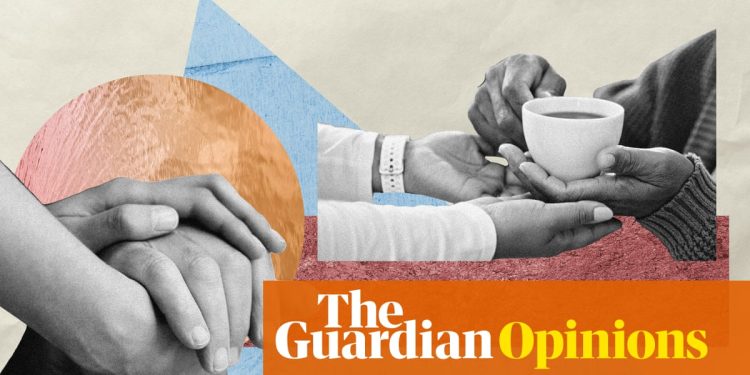“It’s the waiting that is the worst,” the woman says to me. She sits by her mother, who is in her late 80s and has been actively dying for about three days.
“I keep watching her chest,” the woman admits. I watch it too, a shallow rise and fall.
Waiting in the modern era has become something almost as uncomfortable as pain.
As Denis McBride writes in Waiting on God: “In our society there is a direct correlation between status and waiting.”
In other words, the more important you are, the less time you are required to wait for something you want. If I need knee surgery and I can afford private health insurance, I can skip the queue of the public system. My money would buy me time, but more than that, a sense of encapsulation, a protective layer between me and fate.
Everyone knows what it is to wait. As the (ostensible) grown-up in my household, I enforce screen downtime limits and bemoan my child’s inability to entertain herself, conveniently forgetting my own mother’s exasperation when I would stretch out on the carpet of the living room, proclaiming, ‘I’m bored.’
Using the word “bore” to describe something as tiresome came into vogue in the 1700s, presumably in drawing rooms inhabited by Jane Austen’s Lydia Bennet and Mary Crawford. The word has its roots in the old English beran: to carry, endure, give birth to; to move forward, or stand firm, under pressure. In this context, to bear becomes a virtue.
Some of the elderly people I visit are perennially bored. “The days are long,” one man tells me. He is bed-bound, and anything to relieve the boredom, including my bumbling self, is welcome. A woman who has passed her hundredth year laughs ruefully as she tells me, “I’m just so bored.” She was once the kind of person who was always busy. Now she can no longer see well enough to read, and her hearing is almost gone, even with the aids.
“I think this stage is the worst of it all,” the woman I am sitting with says. I try to imagine the stages of her mother’s cancer: the initial diagnosis, the pain of the growing tumours, the nausea of the medicines. I look at her mother’s face, which appears, to me, to be peaceful with pain relief.
I know what the woman means. It’s the not knowing which is the worst. Not knowing the answer to the only question left: when will she die (and, in some tiny, irrational, deeply true part of ourselves, will she really die? Will I?) Not knowing if she is OK, or if, under the still surface of her shallow breathing, she is in torment, wanting to say something or do one last thing. Or if she is even there at all, and we are sitting here, waiting for something which has, on some level, already happened.
As a pastoral carer, it is not my job to entertain or distract. It is my job to sit with people, and whatever they are feeling, even if it means that I am made restless with the deep discomfort of doing nothing. I employ my battery of spiritual practises: meditative breathing, offering prayer from the person’s tradition if they have one, reading poetry, even singing tunes that the person once (hopefully) liked.
Although I might be a professional wait-er, I almost always break under the pressure.
“Do you need a cup of tea?” I ask the woman. Try as I might to remain still, I almost always find myself attempting to make people more comfortable, when they are not the ones who are uncomfortable. Every time I catch myself avoiding the act of waiting, I take a breath, and seek, again, to send my attentiveness to the person.
Patience has to flow in both directions – to the person I wait with, and to me, whom I will always be waiting for.
“No, thanks,” the woman says. She settles into the armchair by her mother’s side. “I’ll just be here.” Fidgeting, dozing, watching her mother’s breath come and go: it’s the last way she can love her mother. She will bear it, this waiting, for as long as it takes.
-
Jackie Bailey is the author of The Eulogy, winner of the 2023 NSW premier’s literary multicultural award. When not writing, she works as a funeral celebrant, helping families navigate death and dying
#Waiting #Godot #boredom #kind #spiritual #practice #Jackie #Bailey





















